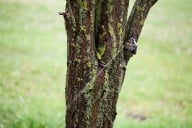You have /5 articles left.
Sign up for a free account or log in.

Istock/izusek
Students at my community college often refer to my colleagues and me as “teachers.” To clarify, I have never heard this as a form of address, as in “Teacher, can you please help me with this?” But as a referential term, it is quite common, as in “My anthropology teacher is . . . .”
I don’t like it. I don’t like being called a “teacher.” Please don’t call me a “teacher.”
Since I hold the title “professor,” one might assume that my sentiment is a matter of some characterological combination of narcissism, hubris and over-wrought self-importance. And while I recognize the possibility that those may be unconscious drivers of my feelings, I think I have done enough introspection to be reasonably confident that my disdain for this term is not the result of that self-aggrandizing alloy.
I don’t, along these lines, require that my students refer to me as “professor.” I have never, for example, corrected a student who referred to me as “Mr. B” by telling her that she should use “Dr. B.” And as far as students of mine who come from other parts of the world and refer to me by the honorific “Mr. Alex”? That’s just fine. Indeed, I refer to myself in class as “an anthropology instructor” to my students. So, no: I do not reject “teacher” because I think that I somehow deserve the more vaunted “professor.”
A year or two ago, I happened to mention my wish to not be called a “teacher” to one of my colleagues in our education program. Her response was, “Wow, you sure don’t think very highly of teachers, do you?” I was a little surprised by what she said; it hadn’t occurred to me that my preference could be mistaken for disrespect or disdain for teachers and what they do. It is simply a matter of the fact that I am not a teacher.
I teach, of course. And pitchers in the National League hit. = But they are pitchers and pitching is their primary job. Hitting does not make them position players any more than my teaching makes me a teacher. Many pitchers are good hitters and enjoy being good at it. I would like to imagine the same for myself when it comes to teaching (but you would have to ask my students about that). In other words, I am not, as a matter of self-identity, an anthropology teacher. I am, rather, a professional anthropologist, and that means that I engage in a number of actions, only one of which happens to be classroom teaching.
If the foregoing sports analogy is unconvincing, consider this: I am not qualified to teach first grade in my state. The state of Illinois does not view me as a teacher, since I have no formal training in fields like pedagogy and learning (indeed, for me to teach elementary and secondary students would be unlawful). I do read. I read about grit and student success and the neuroscience of developing brains. But I am ill-equipped to consistently provide skilled interventions when students have difficulties with attention, comprehension, and reading deficiencies. And aren’t these the sorts of things that are in the wheelhouse of K-12 teachers? So, no; I am not a teacher. In fact, we should get rid of this term altogether in higher education.
A fundamental reason for my wish that “teacher” would disappear from the vocabulary of people at my institution goes beyond my own sense of identity and preparedness and is grounded in the expectations of students that are signaled by the term “teacher.”
The Wrong Connotations
Whether from a linguistic angle, or a sociological one, it seems that, for students who have spent a dozen years in the educational system, “teacher” carries a set of connotations that I am pretty sure most college-level instructors would just as soon not have attributed to them. Speaking for myself, I do not want to be associated with such connotations in the minds of my students, and eschewing “teacher” is one easy way to do that.
First, as a professional anthropologist, I do not have the interest, inclination or patience to be a classroom disciplinarian. I understand that K-12 teachers must be vigilant monitors of student behavior since children are not always able to focus first and foremost on learning. That requires an array of stick-and/or-carrot mechanisms that make the teacher the governor of student behavior. My job? Not that. My job in the classroom is to explicate anthropological concepts and findings and to discuss their relevance.
Second (and perhaps not unrelated), a K-12 teacher functions very much in loco parentis, whether intended or not. For very good reasons, teachers are expected to be protectors of the children in their charge. It is easy to imagine that most students completing secondary education, in at least some ways, see teachers as quasi-parents -- even if not entirely consciously.
But I am a professional anthropologist, with the responsibility of providing anthropological concepts and findings along with their relevance -- nothing about which should make me akin to a parent to the students in my classrooms. Most of my students are at least 18 years of age. How then could the use of “teacher” possibly be a good idea? It is difficult to see how these newly-minted adults benefit by associating me with characteristics of a parent as they sit in my classes.
Third, and perhaps most relevant, as a professional anthropologist, I am not students’ adversary. I am, rather, an easily accessible classroom source of anthropological concepts and findings along with their relevance. Students can determine, on the basis of their own cost-benefit algorithms, whether to attend -- in both senses of the word. I still marvel that students view things like exams as an “us against him” struggle, and I am not entirely sure of the origins of this view, but I am convinced that most students view their K-12 teachers in this way.
When an exam is an agonistic competition between rivals, cheating becomes a plausible strategy -- one that has to be calculated in terms of costs of being caught and benefits of a higher score. In fact, that’s why many students do not view academic cheating as a moral issue but as a pragmatic one. In a struggle against an adversary who tries to put obstacles (a failing grade) in one’s path to a high-stakes goal (limited time and money to pursue a degree), all is fair. In this teacher-as-adversary world, exams are zero-sum games between student and instructor.
But why would a college or university instructor signal that she is the opponent by allowing students to use “teacher”? Far preferable would be if the opponent/adversary in a college setting is the student herself prior to taking the course. Then cheating harms only the student, who fails to successfully determine how far she has moved from uneducated to educated. That students would actually view things this way may only happen in an idealized educational utopia, but to continue to use “teacher” will certainly not move anyone in that direction.
To take it a step further, I believe that disruptive classroom behavior is substantially the result of referring to collegiate instructors as “teacher.” These “classroom management” issues must be, at least in part, the result of students seeing the person in the front of the room as primarily a disciplinarian, quasi-parent, adversary first and a professional a distant second. Should it be entirely up to students to make this adjustment in perspective and attitude?
After all, I am usually the oldest person in the room, and I engage in many of the same behaviors that their secondary school teachers did. I lecture and administer tests, for example. But those similarities are misleading, and the use of “teacher” to refer to me only camouflages the important differences: that it is not my job to be a disciplinarian, that I do not have anything like the function of a parent in the classroom, and that I am not a student’s adversary.
Some readers may think that this all seems just fine for a faculty member at a research university but is an inappropriate view for someone to hold at a community college where, when all is said and done, teaching is Job One. And I do teach a lot. But, again, as in my baseball analogy, that doesn’t make me a teacher any more than a pitcher in the batter’s box is a hitter. To think this way is an easy error to make. No one could disagree with the premise that “If I am a teacher, then I teach.” But it is a logical fallacy to conclude that “If I teach, then I am a teacher.”
It is not clear to me how viewing myself as a professional anthropologist -- and engaging in behaviors that I think are consistent with that label -- would be at odds with being an effective classroom instructor. And each time a student refers, unchallenged, to me or to one of my colleagues as a “teacher,” it’s an opportunity lost for reorienting student expectations of and understandings about the nature of post-secondary education and educators.
The bottom line is this: if we want to see less high-schoolish behavior in our classrooms, we should abolish “teacher” on our campuses. I might be wrong, but would it be worth trying, just in case I am right?








